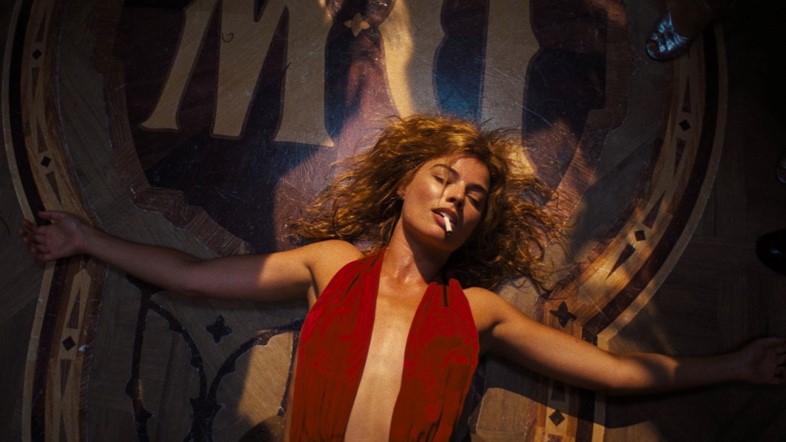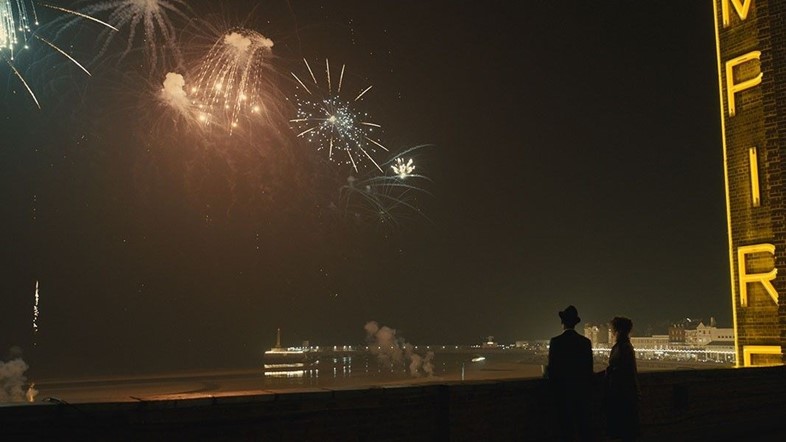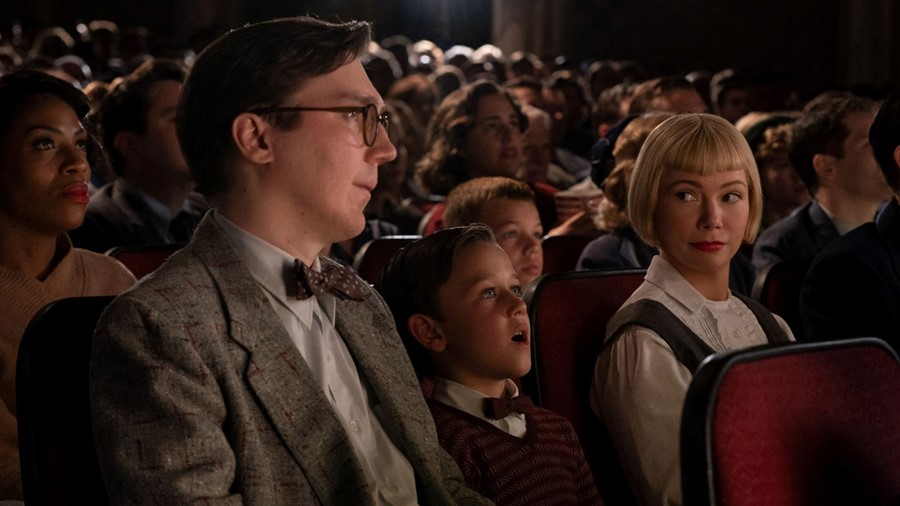Damien Chazelle’s Babylon, Steven Spielberg’s The Fabelmans, and Sam Mendes’ Empire of Light – all films that double as hymns to the magic of moviegoing – are failing to connect with audiences. Why?
Babylon, Damien Chazelle’s orgiastic ode to the debauchery of pre-Code Hollywood, is a curious beast: part love letter to the frontier age of American filmmaking, part furniture-smashing takedown of the era’s whitewashing in the history books. It’s a story with two leads – one, the classic Hollywood ingénue (Margot Robbie) who enjoys a whirlwind rise to the top, and two, a Mexican immigrant (Diego Calva) who we first see pushing an elephant up a hill in the desert, an apt metaphor for the extraordinary hustle he must display to break into the industry. Lent a sustained note of fury by Justin Hurwitz’s blaring jazz score, the film is more convincingly in love with the legend than it is being angry at the reality that lay behind it. (Chazelle, lest we forget, is the gently revisionist talent behind La La Land.) But for its first hour especially, it’s a joyous watch that the filmmaker keeps roaring along at a ferocious clip.
Curiously, Chazelle’s epic joins a pair of upcoming releases – Steven Spielberg’s The Fabelmans, Sam Mendes’ Empire of Light – that double as hymns to the magic of moviegoing. Also, based on box-office receipts from the US, they are movies that no one is going to see: The Fabelmans is on track to be the biggest box-office bomb of Spielberg’s career, and Babylon has so far recouped just $15m of its lavish $80m budget. Empire of Light, meanwhile, earned less in its opening weekend than Will Ferrell’s OG Christmas classic Elf.

Why are these films failing to connect with audiences? Perhaps, in attempting to instil a sense of reverence for the big screen, Chazelle and co are simply out of step with the times. After all, streaming suits most people’s needs just fine nowadays – and with the world burning, do we really need more films that seem content to polish cinema’s legend at vast expense? There can be a sense with these kind of cinephile projects of preaching to the converted – a line that Chazelle crosses at the end of his film, with a montage of iconic moments from cinema history that comes off as complacent and dull.
But the reasons for these films’ commercial failure transcend their individual flaws. ‘World-building’ is one of those annoying phrases that seems to have stuck with film buffs of late, but the simple fact is, when it comes to putting bums on seats in cinemas, most movies now come with their worlds pre-built. The stats bear this out in the starkest possible terms: in the US, every one of the ten highest-grossing films of 2022 was a franchise instalment, five of them superhero movies – a picture only complicated slightly in the UK by the appearance of Elvis, Baz Luhrmann’s biopic of the Memphis rock legend.

With superheroes crushing all comers at the box office, there has been much wailing and gnashing of the teeth in industry circles about the demise of the so-called ‘mid-budget’ film (roughly, productions whose costs run from anywhere between five and 60 million dollars). Traditionally, these films tend to include the awards-baitier end of the spectrum, and many of last year’s crop have defied critical acclaim by failing to break even, from Todd Field’s rave-reviewed Tár to The Banshees of Inisherin, Bones and All and Maria Schrader’s She Said. Lamenting this state of affairs, Sam Mendes told the BBC this month, “The 20th century, the great era of movies, the great entertainment form – which was going out to the movies – is dying.”
There are multiple theories as to why these films continue to underperform. One is that the older demographics that once sustained them have now gotten the hang of how to use Netflix, and are in no hurry to return to cinemas post-pandemic. Another is that these films – which tend to rely on word of mouth and therefore need time to find their feet at the box office – are frequently pulled from theatres after a short run to land on streaming services. This is a problem for cinemas, who cannot rely on blockbusters alone to prop up their business models if they are to survive in the long term.

Of course, cinema has survived multiple run-ins with the future before. Babylon and The Fabelmans both allude to The Jazz Singer, the Al Jolson musical often credited with killing the silent era of Hollywood moviemaking. In Spielberg’s film, it’s part of an old man’s reminisce, as an eccentric uncle regales the young protagonist, basically an avatar for the director, with tales of his adventures in Hollywood. In Babylon we witness the carnage that film caused first-hand, as Diego Calva’s character attends its raucous New York premiere in 1927, the implications of its success dawning on him in real time.
Another film that sent shockwaves through the industry was Spielberg’s own Jaws, which laid the blueprint for blockbuster filmmaking that holds to this day. There would be a certain grim irony in this architect of the modern moviegoing experience providing the ‘grown-up cinema’ it helped to replace with its swansong. But Spielberg and co came here to praise cinema, not to bury it. Didn’t they?
